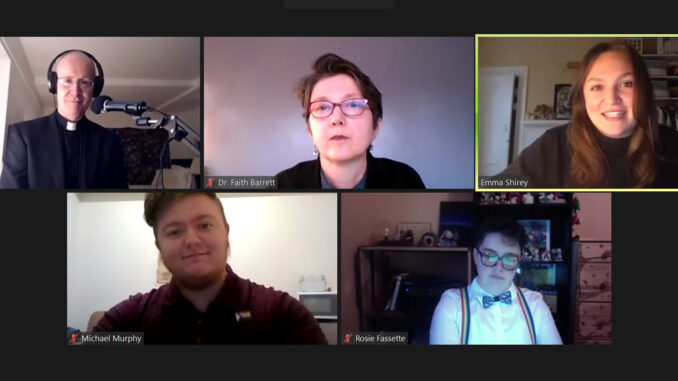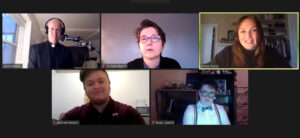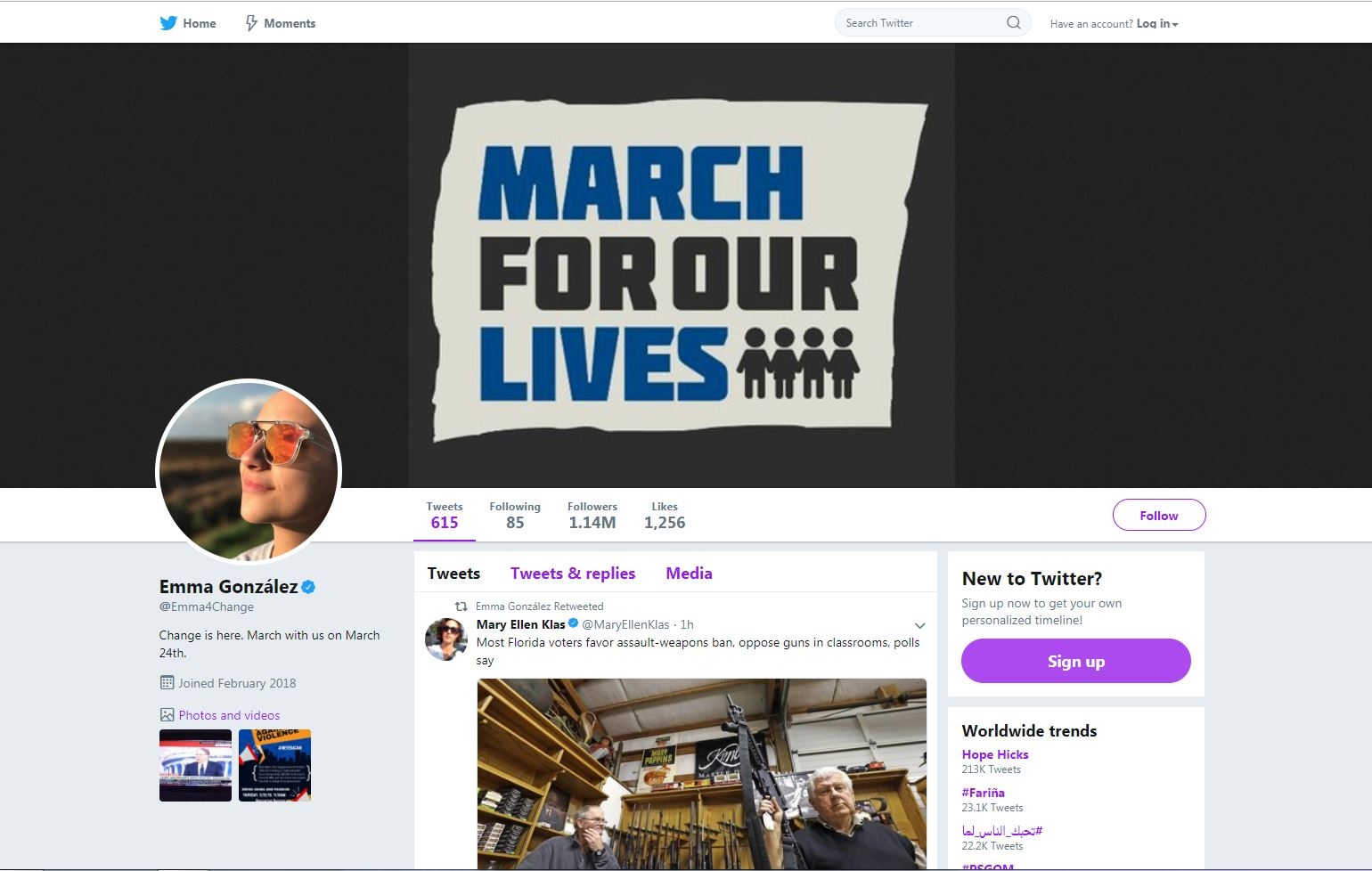

Kellen Stepler | Editor-in-Chief
02/25/2021
How can Catholic universities welcome LGBTQ+ students?
On Feb. 24, Duquesne’s Faculty Senate, Office of Diversity and Inclusion and the Gumberg Library held an event on Zoom with keynote speaker the Rev. James Martin titled, “Catholic Universities Welcoming LGBTQIA+ Students.”
Martin is the editor-at-large for the Jesuit Review magazine America and a consultor to the Dicastery for Communication of Vatican News. He shared practices to help Catholic colleges sustain an environment where LGBTQ+ students feel welcomed while honoring a commitment to diversity, equity and inclusion.
“Duquesne is already doing such wonderful work. Even by having a conversation like this shows that they are open and welcoming,” Martin said. “But we can all improve; everybody can sort of do better.”
Martin said that he contacted numerous Catholic college presidents, administration, faculty, staff, students, alumni and trustees to ask for their insights, and presented the “shared wisdom of dozens of people affected by this issue, who work both in the academy and in the church.”
Cura personalis — Latin for “care for the entire person” — is at the heart of this topic, Martin said. The primary question for Catholic higher education isn’t a legal one, a financial one or even an academic one.
“It’s a spiritual one — how to best care for people who have probably doubted that they are loved by God, fear that their parents will reject them, question whether they could find a place in the world, and, if they are a Catholic, have certainly doubted or despaired about their place in the church,” Martin said.
He provided 10 best practices for Catholic universities to help support and care for LGBTQ+ individuals, like the “God-given dignity of the human person” and calling people by the names and pronouns they choose to show respect.
“They should be cared for, not because they are Catholic or not Catholic but because we are Catholic, and this is a Catholic school,” Martin said. “Catholic schools should be known for their acceptance of LGBT people as a visible sign of how much we value their God-given dignity.”
He also wanted people to remember how much LGBTQ+ individuals have suffered, and cited U.S. Department of Health statistics that lesbian, gay and bisexual youth contemplate suicide at almost three times the rate of straight youth, and they are almost five times as likely to have attempted suicide.
Martin encouraged Catholic institutions to be clear and creative with programs that welcome LGBTQ+ individuals, to stand with them and to make the whole school a place where LGBTQ+ individuals can feel safe and supported.
“It’s important for gay students to know that they are not alone, that there are others like them on campus and for them to form a support,” Martin said.
Being open to learning new things, asking questions when you don’t understand and educating yourself and the school can also make an environment feel more inclusive.
Following Martin’s lecture, a Q+A panel of student leaders had the opportunity to respond and share their opinions on the topic.
The panel was composed of Emma Shirey, a senior English major and president of the Gender Forum; Mike Murphy, a theater arts and women and gender studies (WGS) major and special advisor to LAMBDA; Rosie Fassette, a law student and president of Law LGBTIA + EIID and Faith Barrett, an English professor and the director of the Center for Women’s and Gender Studies.
“Events like this … are not the goal, they are the stepping stone,” Shirey said.
Murphy echoed similar statements to Shirey, saying that events similar to the panel are the kind of bridge that needs to be built at Duquesne.
“To be loved is to be welcomed,” Murphy said.
Fassette said that if people want to become allies, it begins with education, and people should look at LGBTQ+ individuals as people who have been “left for dead” — because they have been.
“We are not afraid to answer questions as long as they come from the heart,” Fassette said. “Make it not just a safe place, but a brave place.”


